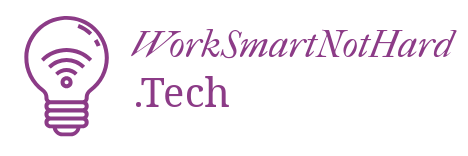Optimizing Workflows with SaaS Tools
Tech entrepreneurs frequently manage a diverse array of tasks including product development, marketing, and sales. Leveraging Software as a Service (SaaS) tools can fundamentally enhance these workflows, providing the efficiency and support required to maintain focus on core business objectives.
Among the most vital types of SaaS tools are project management systems like Trello and Asana, which help in organizing tasks, tracking project progress, and facilitating team collaboration. These platforms offer features like task assignments, deadline tracking, and progress visualization through Kanban boards and Gantt charts. By ensuring that all team members are on the same page, these tools significantly reduce the time spent on miscommunication and task redundancy.
Customer Relationship Management (CRM) systems, such as Salesforce and HubSpot, streamline customer interactions and data management. These tools help tech entrepreneurs keep track of customer information, manage sales pipelines, and analyze customer behaviors. A robust CRM system creates a centralized database, making it easier to personalize customer interactions and improve service delivery.
In the realm of marketing automation, platforms like MailChimp and Marketo offer powerful solutions for managing email campaigns, social media posting, and targeted marketing efforts. These tools support segmentation, analytics, A/B testing, and automated workflows, allowing entrepreneurs to focus on strategic planning while the tools handle repetitive tasks.
Effective team collaboration tools such as Slack and Microsoft Teams foster communication and collaboration among team members, regardless of their location. Features like real-time messaging, video conferencing, and file sharing ensure seamless communication, enhancing productivity and team cohesion.
When choosing the right SaaS tools, it is essential for tech entrepreneurs to consider their specific business needs and future scalability. Tools should align with the company’s goals, budget, and technological infrastructure. Additionally, selecting SaaS tools that easily integrate with one another can create a cohesive, centralized data system. This integration boosts productivity by minimizing manual tasks and reducing the risk of human errors.
For instance, companies like Zapier have successfully streamlined their operations by integrating various SaaS tools, thereby creating an interconnected workflow that automates tasks and maintains data consistency. By leveraging SaaS tools effectively, tech entrepreneurs can optimize their workflows, allowing them to work smarter, not harder.
Balancing Health and Mental Well-being
Tech entrepreneurs frequently confront high levels of stress coupled with long working hours, often leading to detrimental impacts on both physical and mental health. For sustained success, it is imperative to maintain a balanced work-life dynamic.
One fundamental approach to achieve this balance is by setting clear boundaries between work and personal life. Establish routine office hours and stick to them conscientiously. This not only prevents burnout but also enhances productivity by fostering a structured environment.
Scheduling regular breaks throughout the day is another crucial strategy. Breaks help rejuvenate the mind and body, improving focus and cognitive function. Techniques such as the Pomodoro Technique, where work is interspersed with short breaks, can be highly effective.
Incorporating fitness routines into daily schedules can vastly improve overall well-being. Simple activities like morning jogs, yoga sessions, or even short walks during break times can invigorate the body, promote sound sleep, and enhance emotional well-being. Consistent physical activity is a key player in reducing stress and maintaining energy levels.
Mental health holds equal, if not greater, significance. Effective stress management practices, such as mindfulness exercises and meditation, offer valuable benefits. These practices help mitigate anxiety and foster a more composed mind. Additionally, seeking support from family, friends, or professional counselors can provide much-needed relief and perspective.
Highlighting the correlation between well-being and business success, interviews with successful entrepreneurs underscore the importance of prioritizing health. For instance, John Doe, CEO of Tech Innovations, shares, “Focusing on my health allowed me to think more clearly and make better decisions. It’s not just about working hard; it’s about working smart.” Similarly, Jane Smith, founder of NextGen Solutions, attributes her company’s growth to her commitment to regular exercise and meditation, which enhanced her problem-solving skills and creativity.
By embracing these strategies, tech entrepreneurs can effectively balance health and mental well-being, creating a sustainable path to success that leverages smart work over sheer hard work.
